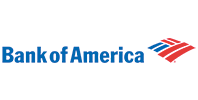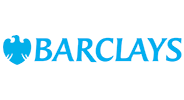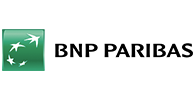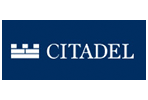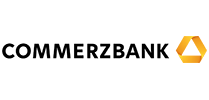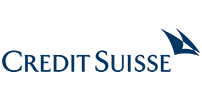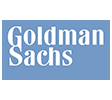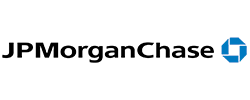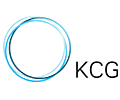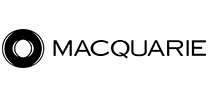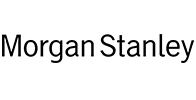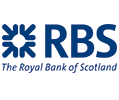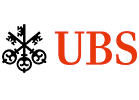Forex Trading Scams: How to Identify and Prevent Them in 2025
The forex trading market offers a world of opportunities, with millions of traders participating globally to profit from currency movements. However, where there is money to be made, there are also risks especially in the form of scams (Forex trading scams). As forex trading continues to grow, so too does the sophistication of fraudulent schemes that target both new and experienced traders alike.
In this article, we will explore the most common forex trading scams, how to spot them, and practical steps you can take to prevent falling victim. Armed with the right knowledge, traders can safeguard their investments and avoid being trapped by these fraudulent practices.
Common Types of Forex Trading Scams
The foreign exchange market, or forex, is the largest and most liquid financial market in the world. The anonymity and accessibility of the internet allow scammers to operate across borders, making it challenging for victims to seek recourse. In such an environment, it’s critical to understand the types of scams and how they work. To protect yourself, it’s essential to know what types of scams you may encounter in the forex market.
1. Ponzi & Pyramid Schemes
In Ponzi schemes, scammers promise high returns with little or no risk by using funds from new investors to pay returns to earlier investors. Similarly, pyramid schemes involve recruiting others to invest under the promise of commissions for bringing in new participants, rather than through actual trading profits. These schemes collapse once the scammer runs out of new recruits to pay the older investors.
Warning Signs:
- Guaranteed high returns with little or no risk.
- Emphasis on recruiting others to participate rather than actual trading performance.
2. Unregulated Forex Brokers
One of the most common scams involves unregulated or “offshore” forex brokers. These brokers typically promise tight spreads, high leverage, and substantial bonuses but operate without adhering to any regulatory framework. Once they attract clients and collect their funds, they may manipulate trade executions or disappear entirely, leaving traders unable to withdraw their capital.
Warning Signs:
- Lack of proper regulation.
- Difficulty withdrawing funds.
- Unexplained fees or charges.
3. Signal Seller Scams
A signal seller scam involves individuals or companies offering “expert” trade signals for a fee. These signals promise to provide profitable entry and exit points for trades. While legitimate signal providers exist, many scammers sell worthless signals or manipulate results to lure victims.
Warning Signs:
- Unrealistic claims of high success rates.
- No verifiable track record.
- High fees with little transparency.
4. Fake Investment Funds
Scammers often create fake forex investment funds that promise consistent returns based on automated trading systems or ECN platforms. These funds typically ask for an upfront deposit, and once they have collected enough money, the scammers disappear.
Warning Signs:
- Lack of transparency on trading strategy.
- Over-promising high returns with minimal risk.
- Poor customer support or evasiveness when questioned.
5. Phishing and Hacking
Another common scam involves phishing attempts where scammers pose as legitimate brokers or financial institutions. They trick traders into revealing sensitive information like passwords, account numbers, or private keys, often leading to the loss of funds.
Warning Signs:
- Unsolicited emails or phone calls asking for sensitive information.
- Suspicious links or attachments in emails.
- Requests to reset your account credentials without your prior request.
How to Identify Forex Trading Scams
Now that we’ve outlined the common types of scams, here are some general red flags that should make you cautious when engaging with a broker or investment opportunity:
- Promises of High Returns with No Risk
Any promise of guaranteed high profits with little or no risk should be an immediate red flag. Legitimate forex trading involves inherent risks, and no broker or investment can guarantee consistent profits without losses. - Unregulated Brokers
Always verify that your forex broker is properly regulated by a reputable financial authority. Regulatory bodies such as the Financial Conduct Authority (FCA), Australian Securities and Investments Commission (ASIC), and Cyprus Securities and Exchange Commission (CySEC) ensure that brokers adhere to strict standards, protecting clients’ funds and ensuring fair practices. - Pushy Sales Tactics
Scammers often apply pressure to get you to invest quickly. They may use aggressive sales tactics, telling you that the opportunity is limited or that you must act immediately. Legitimate brokers will never pressure you to make hasty decisions. - Unrealistic Leverage Offers
Some brokers offer extremely high leverage ratios to attract clients. While leverage can enhance gains, it also magnifies losses. Be cautious of brokers offering leverage that exceeds regulated limits, as this may indicate a lack of oversight. - Lack of Transparency
Legitimate brokers will provide clear and transparent information regarding fees, spreads, and trade execution times. If a broker seems evasive or vague when asked for these details, it’s a red flag.
Preventing Forex Scams
Prevention is the best defence against falling victim to a forex scam. By following these steps, you can safeguard your funds and minimize the risk of being defrauded:
1. Research the Broker
Before depositing any money, thoroughly research the broker’s regulatory status. Use reliable sources to confirm their registration with respected financial authorities. Reputable brokers like those offering MetaTrader 4 for forex trading will always have clear information on their regulatory status.
2. Start with a Demo Account
Most legitimate brokers offer a Forex demo account that allows you to test their platform without risking real money. Use this to get a feel for the broker’s services and platform stability. If a broker does not offer a demo account, this is a major warning sign.
3. Be Skeptical of Bonuses
While bonuses may seem like an attractive incentive, scammers often use them to lock in traders or impose harsh withdrawal restrictions. Be cautious of brokers that offer bonuses with complex or restrictive terms and conditions.
4. Secure Your Accounts
Enable two-factor authentication (2FA) on all trading accounts, and never share sensitive information like passwords or private keys with anyone. Always use a secure internet connection when accessing your trading platform.
5. Trust Reputable Brokers
Finally, the best way to avoid scams is to stick with regulated brokers that have a proven track record. Research independent reviews and forums to ensure that the broker is trusted within the trading community.
How FXCG Helps You Avoid Forex Trading Scams
As a regulated and trusted broker, FXCG is committed to protecting traders from falling prey to forex trading scams. With full regulatory compliance, FXCG ensures that clients’ funds are securely held in segregated accounts, and all fees, spreads, and execution policies are fully transparent. At FXCG, we also provide educational resources to help traders learn to trade FX safely. If you’re ready to trade with confidence and avoid scams, trust FXCG, a broker that values transparency, compliance, and client protection.
In conclusion, Forex trading offers significant opportunities, but the risks associated with scams are real. By staying informed about the types of scams out there and taking preventive measures, traders can protect themselves and trade safely. Always choose a forex broker with a strong regulatory background, transparent practices, and a commitment to ethical service.
If you want to trade with peace of mind, consider FXCG—your trusted partner in the world of forex trading.
before: Building Trust in Forex Trading: Integrity, Transparency, and Ethics in 2025
